2020-01-29
Authors
Nadya Ponomarenko
is an art curator, cultural professional and researcher in the sphere of international cultural relations. Her academic background is a BA in International Relations at Lobachevsky State University of Nizhny Novgorod and an MA in Cultural Diplomacy Policy and Relations at Goldsmiths, University of London. Currently, she is working as a PR-manager in the Fund of cultural projects "Thursday” in Moscow.
Review Winter School "Brokering Intercultural Exchange within Societies" 2019
The importance of community engagement for socially responsible arts management

In November 2019 I was lucky to attend the International Winter School ‘Brokering Intercultural Exchange within Societies’. During the three days, I had a very warm feeling of being understood. Though the participants came from different countries and had different backgrounds, we were a community of like-minded people who are truly passionate for arts and culture.
It was the second Winter School organized by the network Brokering Intercultural Exchange, Hochschule Heilbronn, MitOst e.V. and held at iac Berlin. I spent three days learning, talking, thinking about arts and culture in the company of thirty-five participants from all over the world, the inspiring organizers of this event and knowledgeable speakers (cultural professionals and academics).
Each day started with several ice-breaking games that aimed to establish connections among the participants, organisers and speakers. These games helped to overcome any division between the groups and create an atmosphere of equality. While sessions and discussions connected people on the professional level, the games helped to establish personal relations among the participants.
Arts management beyond administration
The professional part of the Winter School consisted of two kinds of sessions: led by speakers and led by participants. Through the three days of the Winter School we enjoyed sessions offered by Dr. Raphaela Henze, Dr. Antonio Cuyler, Christina Chara Loannou and Francois Matarasso, who presented different views on arts and cultural management and covered professional aspects that were of interest for the participants.
Dr. Raphaela Henze led the first session and set up a framework for the three days of the Winter School. She brought up several challenges the world faces today: the rise of populism, elitism in arts and culture, and the Western centric reference frame of cultural studies, arts management and beyond. Arts managers should be aware of these issues and try to overcome them by being mediators and mentors for people in the artistic process, being less paternalistic, and creating and participating in intercultural exchange. Dr. Antonio Cuyler’s session was dedicated to the power of privileges and prejudices in arts management. First, to fully understand the topic we did an exercise: the participants were divided into pairs and were offered cards with different social groups on it e.g.; women, white, Muslim, gay etc. Our task was to name the myths and truths about those groups. This turned out to be more challenging than we expected. It was not easy to distinguish truths from myths. It made us realize that everyone has their own prejudices and that it is difficult to see the truth through them. To me, to think critically about the ways we practice socially responsible art and cultural management was highly significant.
Christina Chara Loannou gave us a session on public relations in the cultural sector. She is founder of CCI Comms - a global creative communication service based in London and Zurich, and she shared with us her experience in creating PR-campaigns for festivals, galleries and art fairs. Francois Matarasso was the last one to give his session. The artist and researcher spoke about participatory art. He gave us an insight on what participatory art actually is, presented some interesting case studies and shared his experiences. We had a long discussion on why it is important to collaborate with the communities and how cultural projects can influence the communities.
Multi-faceted learning
The sessions offered by speakers were not presented in a format of lectures but more as open discussions. Participants commented on the topics, enriched conversations by sharing their experiences and views. Sometimes, we did not agree with the speakers and we had interesting debates without any hierarchical limitations. For instance, we had a long discussion around the topic if anyone could be an artist. Some people in the group supported this position, others argued that this would diminish the role of professional artists.
As for the sessions led by the participants, everyone had an opportunity to present their cases, share their experience or bring up professional issues of a particular concern. This became possible through a Karma Kitchen format, parallel sessions offered by participants, and open debates. For example, during the Karma Kitchen one of the participants shared with us that she was considering writing her PhD on the impact of evaluation in the cultural sector. She asked us about our thoughts, ideas and materials. I was happy to help because for my master’s thesis I had researched different mechanisms of impact evaluation in three cultural organizations: UNESCO, the British Council and the Prince Claus Fund. We all agreed that impact evaluation is necessary for our sector and should be researched more intensively.
In the afternoon of the first and the second day we also enjoyed special excursions. We were lucky to visit the Barenboim-Said Akademie that offers a bachelor’s degree in music for talented young artists, most of them from the Middle East and North Africa. There we were received by Dr. Carsten Siebert, Chancellor and Managing Director of the Academie, who gave us a tour around the building and a talk about the organisation, its history, purpose, structure etc. On the second day, led by Stella Cristofolini we went to The Haus Schwarzenberg, a cultural centre in the heart of Berlin Mitte. It was interesting to compare these two cultural centres. The first one is a big traditional cultural institution and the second an underground cultural centre popular among locals as well as tourists. To me, it was significant not only to discuss arts and culture through the three days of the Winter School but to experience it and learn about its management on-site.
In my opinion, the organisers succeeded to create a safe space for an open discussion and reflection. The participants were encouraged to share their thoughts, ideas and concerns, discuss challenges they meet and seek advice from others. Some issues were discussed by everyone, some in small groups, and some face to face. It was a great chance to learn about all the exciting projects the participants implement around the world and get an advice from more experienced professionals and academics. It was surprising to find out that though we all work in the different parts of the world we almost all face the same challenges. For example, in most of the countries salaries in the cultural sector are low and it is difficult to find funding for independent cultural projects.
Key findings
To me, the main narrative of the Winter School was the importance of community engagement. All speakers and participants mentioned it. Personally, this never was a crucial part of my research or practice. However, the Winter School showed me how essential this aspect is today for a successful implementation of almost any project. Also, community engagement can be a path to critically assess your work, put things into perspective and ask yourself questions like: Who benefits this project? Is it socially responsible?
Another thing we learned through the Winter School is that though the main principles of arts and cultural management should be the same everywhere, a single approach is impossible because every country and region has its own cultural context, that, e.g., community engagement won’t be possible everywhere and that cultural practices that work in Brazil don’t necessarily have to work in Russia.
I was reflecting on what we discussed at the Winter School and came up with a short list of thoughts and ideas that were in our focus for the three days. I shared them on Facebook and other participants supported my short summary. For me this list resembles a short so-called manifesto of a socially responsible arts and cultural manager:
- It is important to fight elitism in the sphere of arts and culture, and community engagement is a main tool to do that.
- Take time to build trust within your community.
- Organisers of events should function as hosts.
- Every project is a process and a constant change of perspectives.
- Involve the hidden voices and listen to them carefully.
- Arts manager should act as mediators.
- Representation instead of presentation.
- Less paternalism, more pragmatism.
- More networks for social change and intercultural/transcultural exchange.
- Overcome western centric frame of reference by using more narratives, epistemology and methods from the Global South.
- Art allows us to create meaning of what it is to be alive.
- Art is a part of language a part of how me communicate.
- You can’t apply scientific methods of evaluation to art. Evaluation is the reinforcement of existed standards.
- Arts and culture can change the world.
The organisers of the Winter School tried to build a network of young cultural professionals and make people to stay in touch after the end of the Winter School. Personally, when I attended the Winter School, I was in-between the jobs. I was doing some freelance work as an art curator, but I didn’t have a stable employment. It can be quite challenging to find a job in the cultural sphere considering how low the salaries can be. But the Winter School gave me the inspiration I needed and reminded me that working in arts and culture is my vocation and I won’t give it up. In a couple of weeks after I came back from the Winter School, I was offered a position in a young cultural foundation in Moscow.
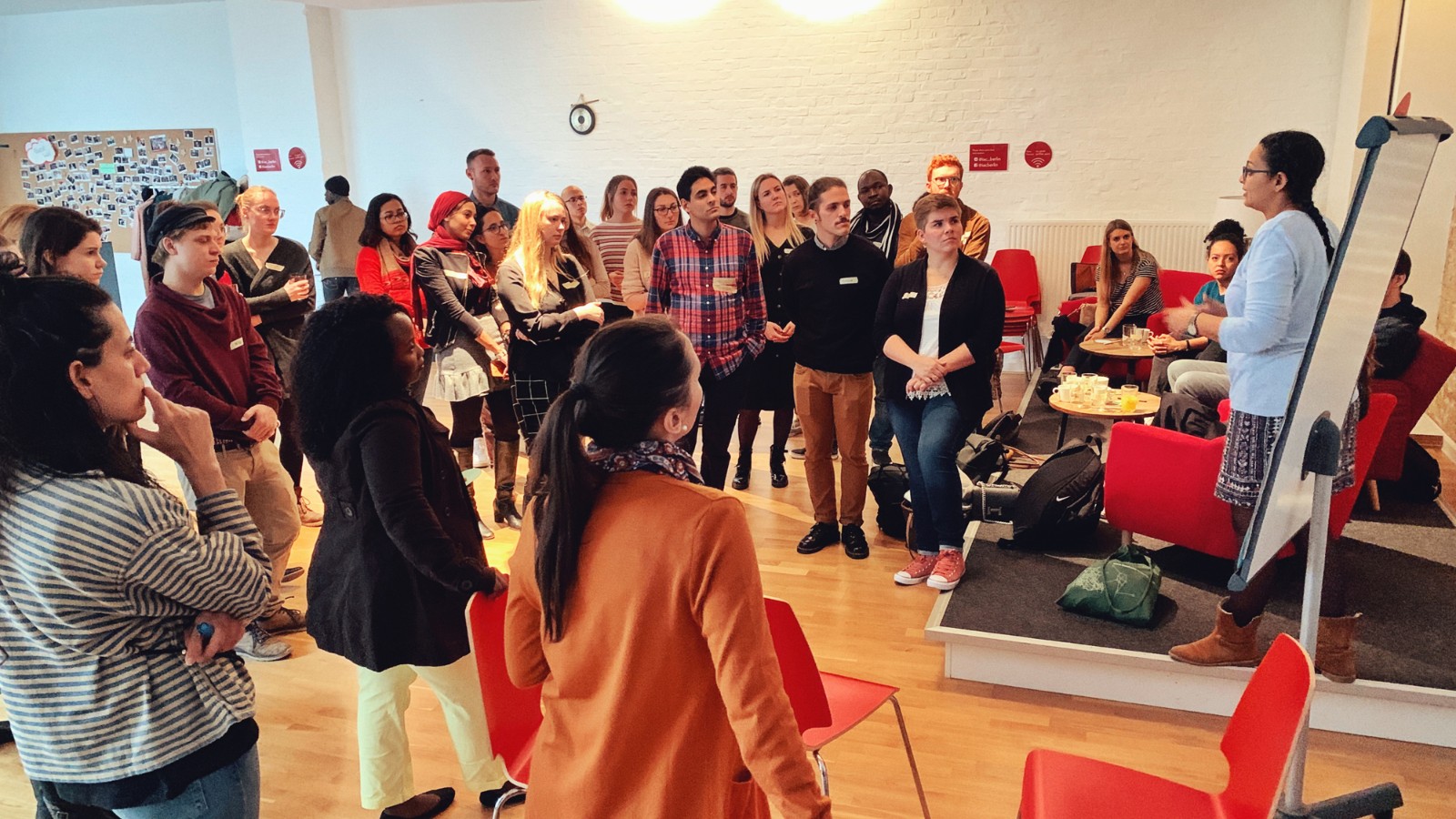
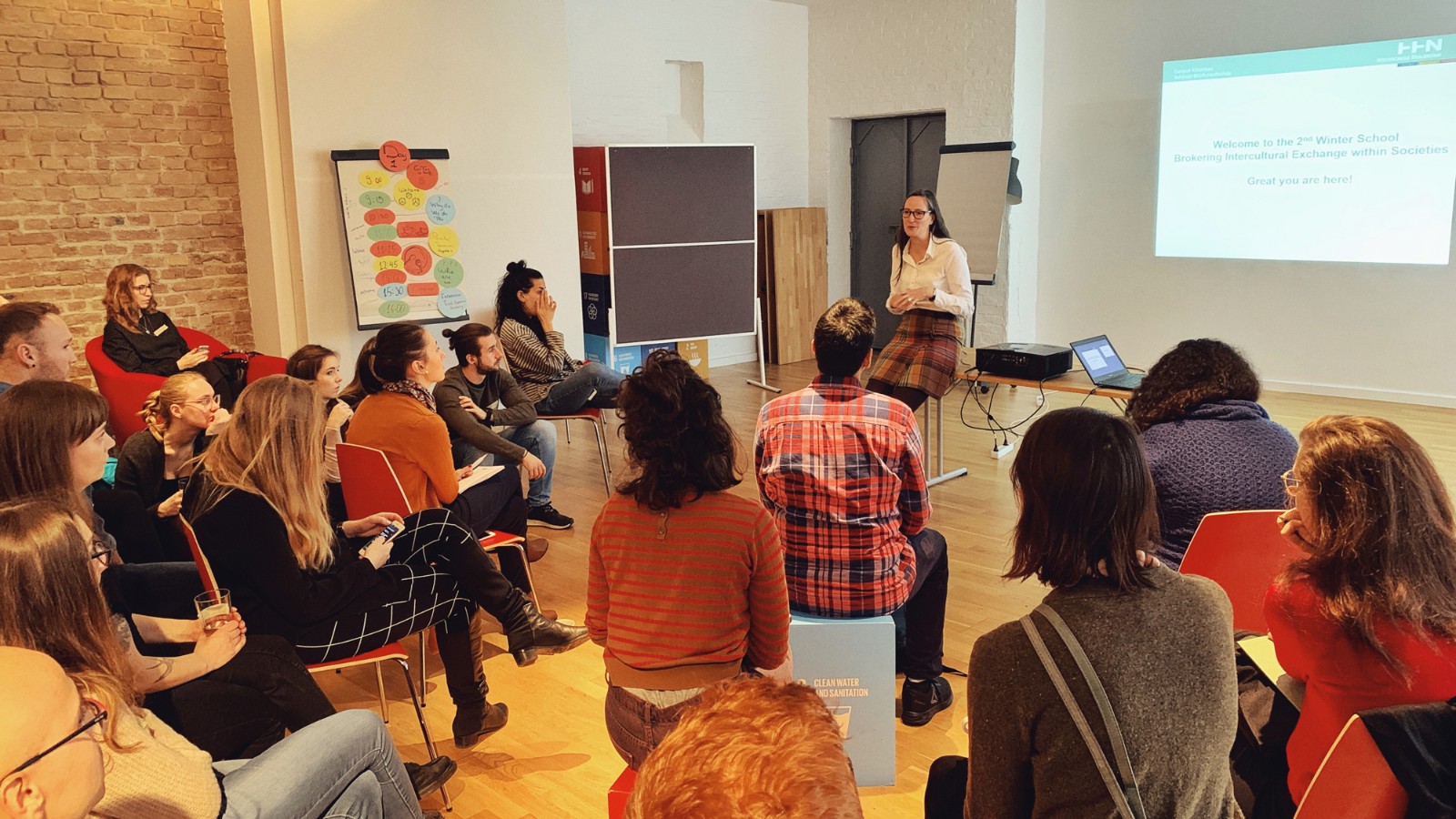
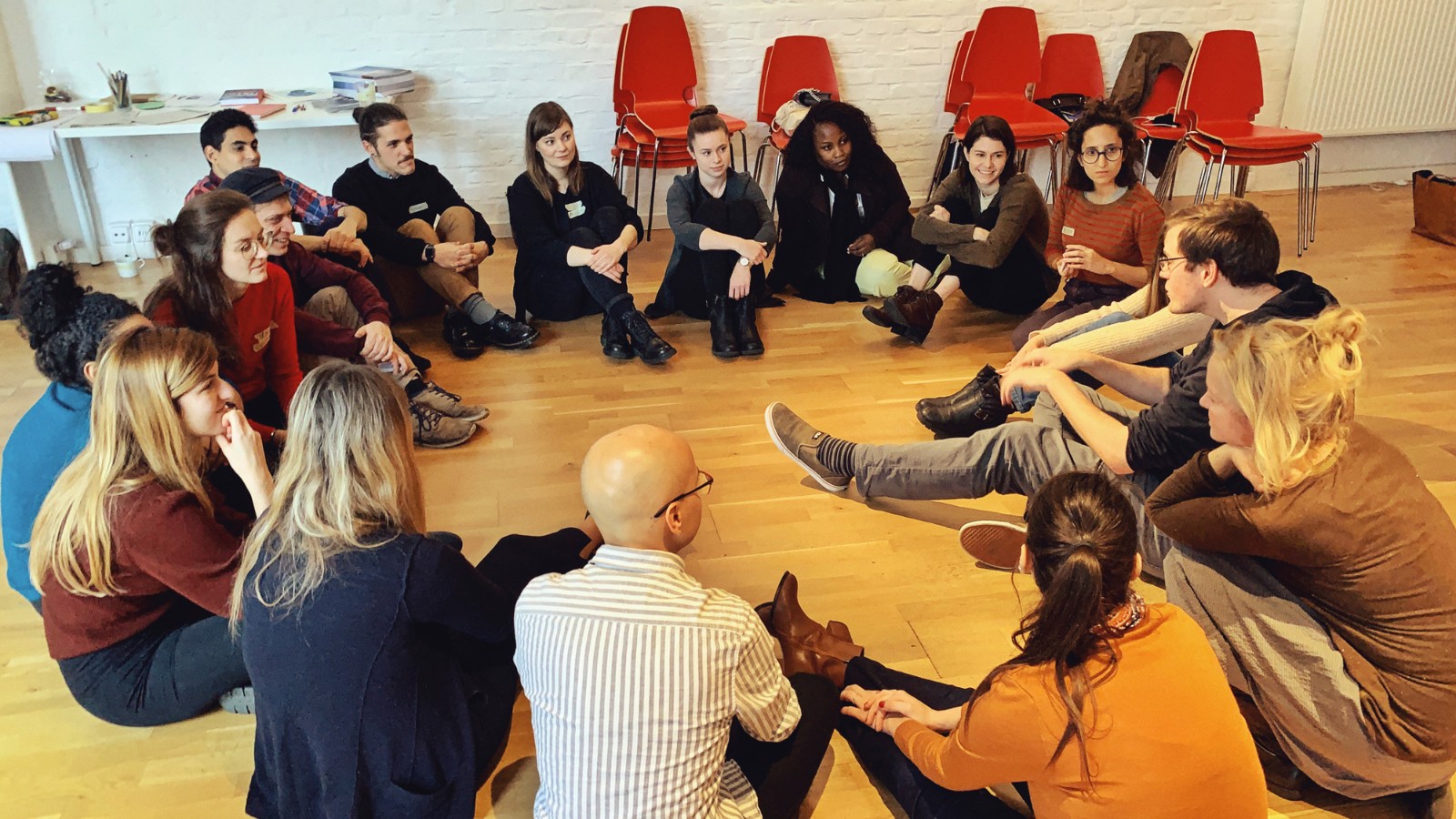
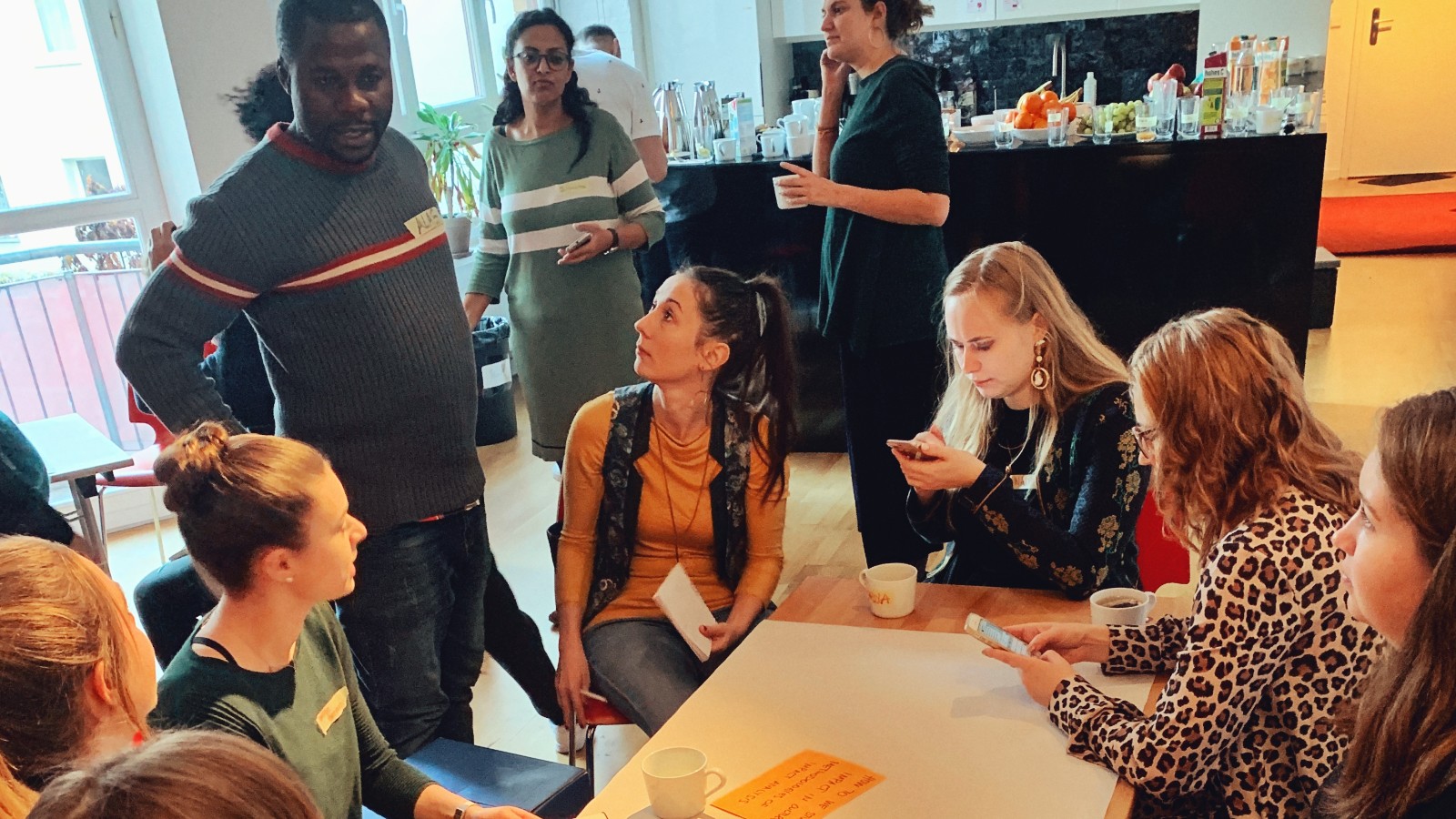
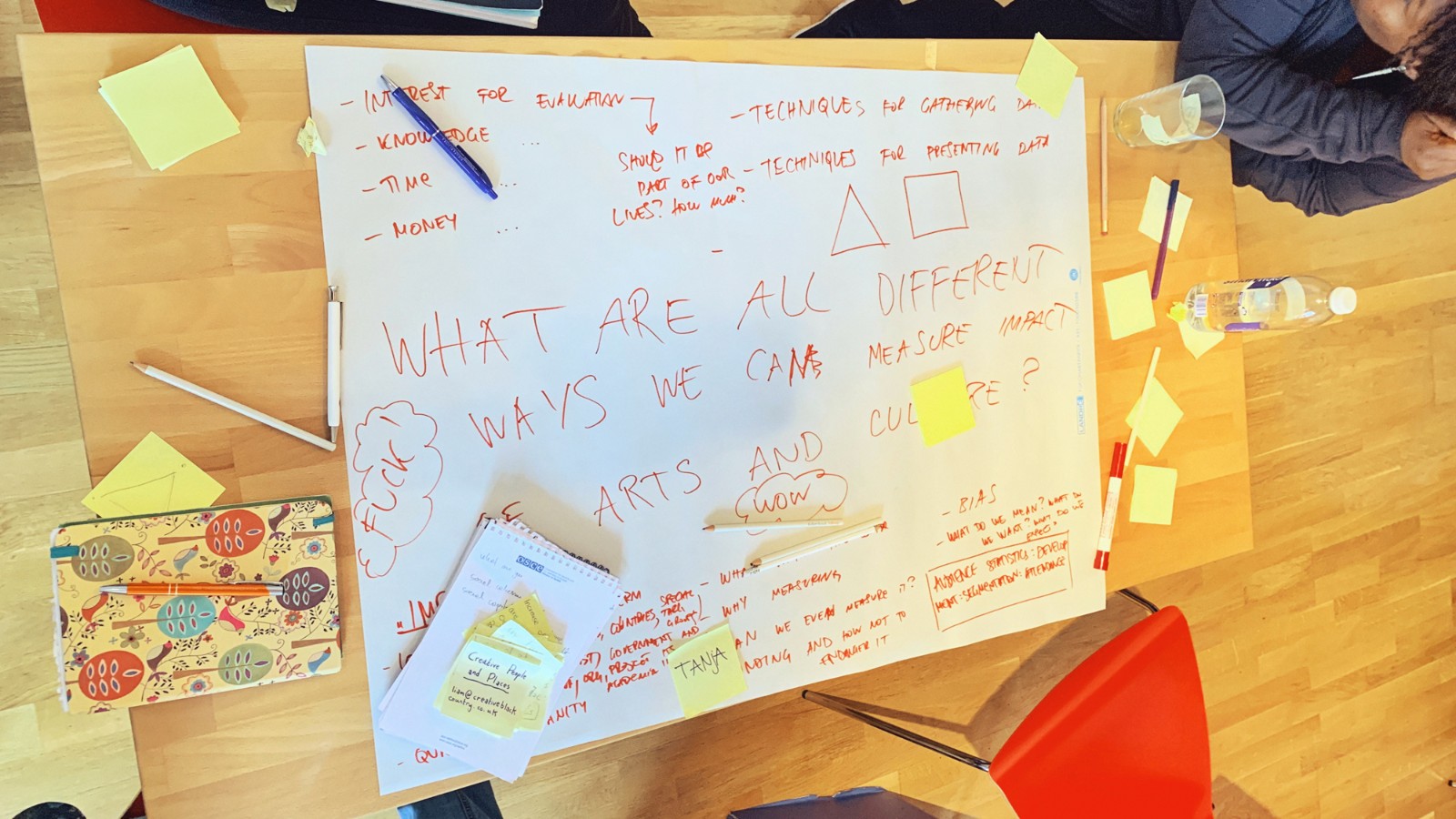
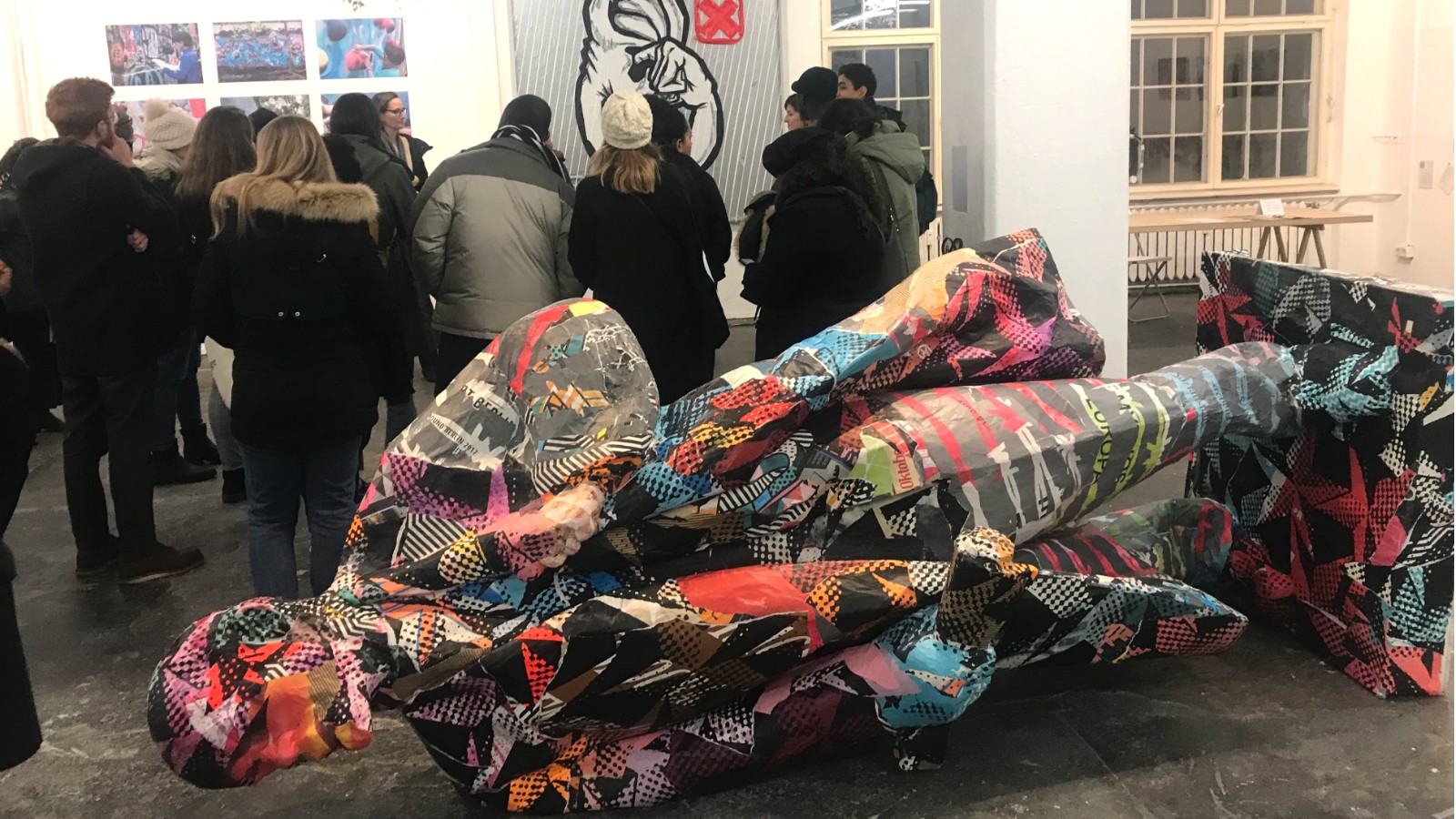
There are no comments for this content yet.
similar content

